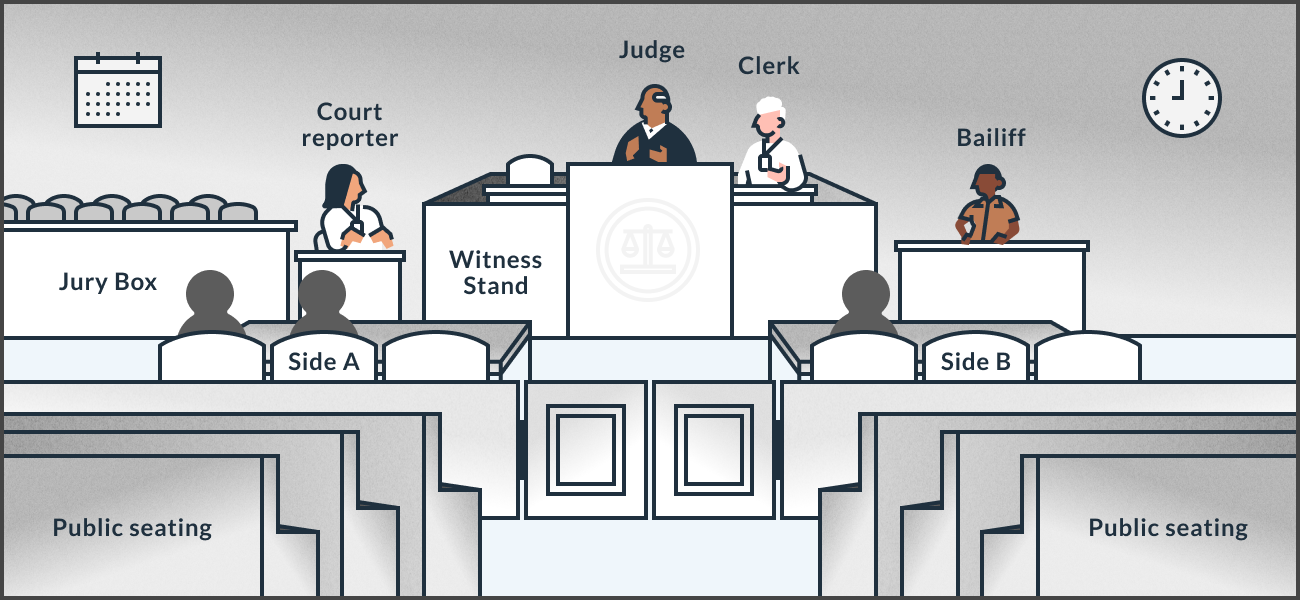Preparing for your day in court is a critical aspect of civil litigation. Whether you are a plaintiff seeking redress or a defendant defending against a claim, thorough preparation can significantly impact the outcome of your case. This guide provides practical tips to help both plaintiffs and defendants prepare effectively for court.

Organize Your Documents
Gather Relevant Evidence
Before your court date, ensure that you have all necessary documents and evidence organized. This includes:
- Contracts: If your case involves a contract dispute, have copies of the relevant agreements.
- Medical Records: For personal injury cases, gather all medical records related to your injuries.
- Financial Statements: For cases involving financial claims, such as damages or support, collect relevant financial documents.
Organize these documents in a way that is easily accessible during the trial. Consider using a binder or digital file system to keep everything in order.
Prepare Witnesses
If you have witnesses who will testify on your behalf, make sure they are prepared. Provide them with copies of any documents they may need to reference and review their testimonies with them. Discuss the key points they need to address and ensure they understand the court procedures.
Develop a Legal Strategy
Consult with Your Attorney
Work closely with your attorney to develop a clear legal strategy. Discuss the following aspects:
- Key Arguments: Identify the main points of your case and how you will present them.
- Evidence Presentation: Determine how you will present your evidence and which exhibits will be most effective.
- Witness Testimony: Plan how you will use witness testimony to support your claims or defenses.
Your attorney can provide valuable insights into courtroom procedures and help you anticipate the opposing party’s arguments.
Anticipate Opposing Arguments
Consider the arguments and evidence the opposing party might present. Develop counterarguments and prepare responses to potential challenges. This proactive approach helps you stay one step ahead during the trial.
Practice Your Testimony
Rehearse Your Statements
Practice delivering your testimony clearly and confidently. Rehearse your key points and answers to potential questions. This will help you present your case effectively and remain composed under cross-examination.
Prepare for Cross-Examination
Anticipate the questions the opposing party may ask during cross-examination. Prepare honest and concise responses. Practice answering difficult questions with your attorney to build confidence and improve your performance in court.
Understand Courtroom Etiquette
Dress Appropriately
Dress professionally for court to create a positive impression. Choose formal attire that reflects respect for the court and the seriousness of the proceedings. Avoid casual clothing or anything that could be considered inappropriate.
Be Respectful and Courteous
Maintain a respectful and courteous demeanor in the courtroom. Address the judge as “Your Honor” and follow courtroom rules and procedures. Avoid interrupting others and wait for your turn to speak.
Follow Courtroom Procedures
Familiarize yourself with courtroom procedures, including how to address the judge, present evidence, and make objections. Your attorney can provide guidance on these procedures to ensure you comply with court expectations.
Prepare for Possible Outcomes
Consider Settlement Options
Before the trial, explore potential settlement options. Settlement discussions can occur at any stage of litigation and may provide a resolution without the need for a trial. Discuss settlement possibilities with your attorney to determine if a negotiated agreement is in your best interest.
Plan for Post-Trial Actions
Be prepared for the possibility of post-trial motions or appeals. Understand the potential outcomes and discuss with your attorney the steps to take if the court’s decision is not favorable. This may include filing a motion for a new trial or appealing the decision.
Manage Your Stress and Emotions
Stay Focused
Trials can be stressful and emotionally challenging. Stay focused on your case and avoid letting emotions interfere with your performance. Take breaks when needed and practice stress management techniques to remain composed.
Seek Support
Consider seeking support from friends, family, or a counselor to help manage the emotional aspects of the litigation process. Having a support system can provide comfort and reduce stress.
Conclusion
Preparing for your day in court involves careful organization, strategic planning, and understanding courtroom procedures. By gathering relevant evidence, practicing your testimony, and maintaining professionalism, you can effectively present your case and navigate the legal process. Whether you are a plaintiff seeking justice or a defendant defending against a claim, thorough preparation is key to achieving a favorable outcome.










